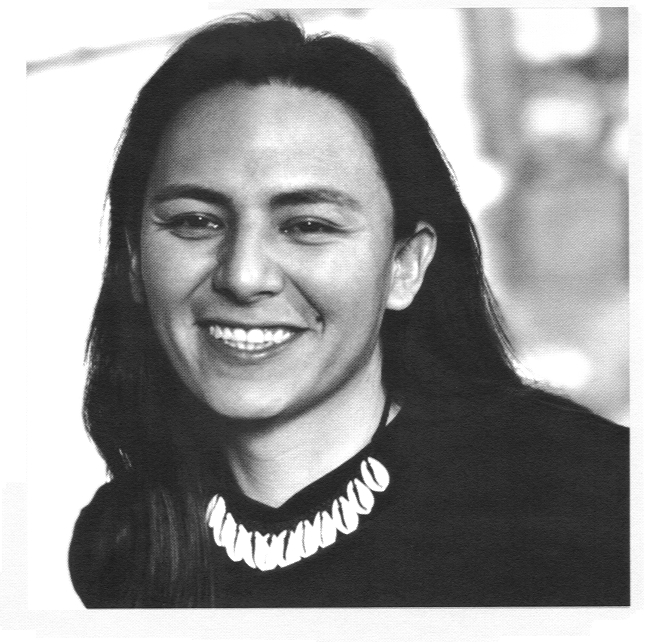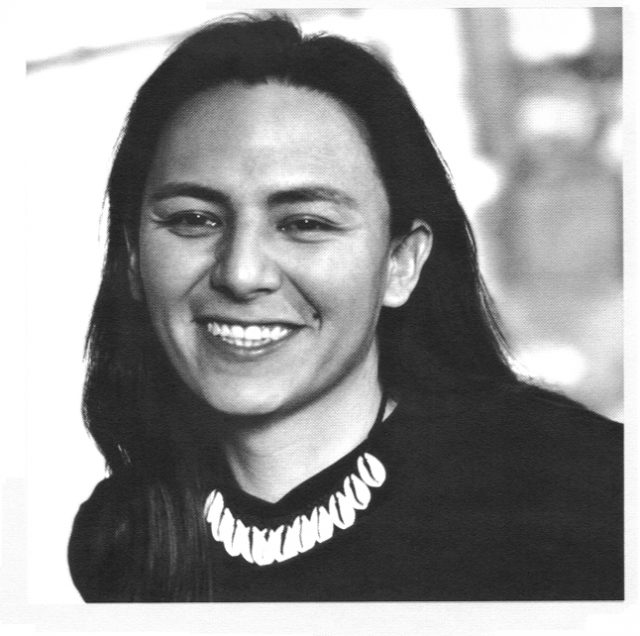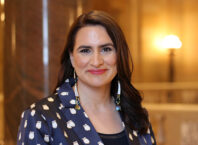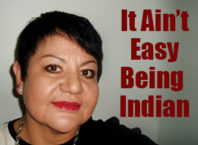 Language is essential to our lives. It
Language is essential to our lives. It
is how we define ourselves. It is how we recognize the world around
us. It is how we name our individual, communal and collective
journey. Language is crucial to our being.
I grew up in a home where Lakota was
spoken by the adults. My parents experienced the boarding school era.
They chose not to teach us our language for our safety, they didn’t
want us to experience ridicule, experience disconnection or
experience loss. It is as adults that we learned to understand our
language.
Growing up on the Rez, I didn’t
understand the nuances of languages until I was exposed to people
outside of my family and my community. As an adult I came to
understand these people, their notions of themselves and how
different we are. Most spoke formal English that sounded different.
They framed their ideas differently. Believe me, it was confusing.
Sounding Rez is a hybrid language. It
is a blend of languages, traditional Native language and English.
Speaking Rez intertwines ideas, weaves our natural story telling
ability and there is a cadence to the sound of it.
I still hear people speaking ‘Rez’
here in the city. When I hear it, I am suddenly home. It is when
another Native on the street says, “Hey Nij” or “Hey Koda” or
“Hey Kola.” I recognize them, and there is a connection. We are
familiar to each other. There is a history that connects us. They
become an aunt, an uncle, a cousin, a sibling, a beloved relative.
I’d like to say the language we use
to speak to each other is always safe, but it is not. I’ve learned
over the years, we terrorize each other. We know each other’s
frailties, so we know how to hurt another Native. We question how
traditional someone is; if they know our tribal stories; how involved
in traditional ceremonies they are, et cetera. It’s unfortunate
because it divides us.
It takes a mature person to understand
when lateral violence is occurring. Lateral violence is when
minorities oppress one another, aka “Crab in the bucket syndrome.”
Look it up on YouTube, it is a topic of conversation that needs to be
spoken about more, and understood, especially if we collectively want
to change our circumstances.
I’ve learned how we speak to
ourselves and about ourselves is essential to our well-being. We must
learn to be gentle. We must learn not to be so critical. We must
learn not to judge ourselves so harshly. Unfortunately, I’ve met
too many young Native kids who gravitate to other cultures because
they can’t find pride within themselves. They’ve internalized
Native stereotypes.
voices that our children hear are what we, as adults, tell them. If
we fill them up with pride, dignity, and self-esteem then when the
world tries to take it away from them, there is plenty left. I’m
mindful how I speak to young people because I want them to see
themselves as beautiful, as wondrous gift from the Creator and an
invaluable asset to the survival of our people. It is they who will
teach our grandchildren, their children, their grandchildren how
incredible it is to be Native.
The next time you see me walking
around town, stop me, say, “Hello” then remind me of the sounds
of our people: Dayeesh!! Hoh’eche. Tuwale. Quacha! Echesh. Wii-nug!
Ata kili! Zee. Skads. Nan’kesh. Hohin! Hayne’do Got chip-in’s? ICK.
Whatthehey! Chun! Ayes, next! Ayeee! Holay! Enit. Chun! Ish, not
even! Cho’snazz. Snaggin. Pure vish.
These are all the beautiful sounds of
home. Our languages. It’s inspiring.
Cetanzi – Nicholas “Nick”
Metcalf, MSW, a long-time community activist who has worked, lived
and loved in the Twin Cities community for over 20 years. Nick is an
enrolled member of the Rosebud Sioux Tribe, South Dakota where he
grew up. Nick attended the University of South Dakota for their
Bachelor’s in Science (Math/Psychology and received their MSW in
Family Therapy at Augsburg College.
Nick has worked in non-profit
management throughout most of their professional career. He currently
works for the Minnesota Department of Human Services and is an active
volunteer on a variety of community projects and initiatives
impacting communities of color. He is active on the Board of
Directors for Minnesota Two Spirit Society, Rainbow Health
Initiative, South High School All Nations Program Parent Advisory
Committee and Minneapolis Public Schools Indian Education Committee.
Nick is an emerging writer/poet who
manages a blog entitled, “Nickizms” and shares his daily musings
on his Facebook profile. Nick’s first published piece can be found
in the 2014 St. Paul Almanac, “A Mother’s Hope.” Nick is a
proud parent of a two active, young men.






